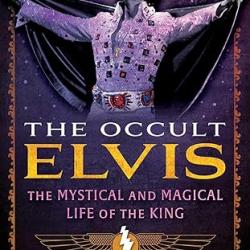January 9, 2011
First Sunday after Epiphany: The Baptism of the Lord
Isaiah 42:1-9; Matthew 3:13-17
 Introductions can be tricky. They are harder to do well than you might think. I do a good bit of guest speaking, so I have been introduced many times to various groups of people. Some of the introductions have been excellent. Some, not so good. The not so good ones are when they overhype you to the point that if you can't walk on water in front of the group, they demand their money back, and it is a free event. Or when the introducer says, "We really wanted Dr. Smith (made up name), but he had to cancel at the last minute and the only person we could find was Dr. McKenzie." (I'm exaggerating only slightly from an actual experience.) Another not so good introduction is when the introducer reads the title of my dissertation (while rolling his eyes to convey how boring it sounds) and several articles I've written and the journals in which they have appeared. By the end, the audience is looking at me like we might be on the brink of a Luke 4:28 moment.
Introductions can be tricky. They are harder to do well than you might think. I do a good bit of guest speaking, so I have been introduced many times to various groups of people. Some of the introductions have been excellent. Some, not so good. The not so good ones are when they overhype you to the point that if you can't walk on water in front of the group, they demand their money back, and it is a free event. Or when the introducer says, "We really wanted Dr. Smith (made up name), but he had to cancel at the last minute and the only person we could find was Dr. McKenzie." (I'm exaggerating only slightly from an actual experience.) Another not so good introduction is when the introducer reads the title of my dissertation (while rolling his eyes to convey how boring it sounds) and several articles I've written and the journals in which they have appeared. By the end, the audience is looking at me like we might be on the brink of a Luke 4:28 moment.
The same thing that can be said about sermons can be said about introductions. "Sermons are like biscuits. They could all do with a little shortening." Good introductions are short. If anyone is going to go on too long and bore the audience, it should be the keynote speaker, not the introducer. Good introductions briefly identify the speaker and list his/her area of expertise and major accomplishments as they relate to the audience's interests. Then the introducer beckons the speaker to the podium and sits down.
Good introductions never conclude with the phrase, "without further ado." Saying "without further ado" is engaging in further ado. It is a contradictory phrase with which to end an introduction. I once spent an entire lecture at a graduate school colloquium thinking about this rather than listening to the speaker. (What is ado anyway?)
Our passages from Isaiah 42 and Matthew 3 this week are a series of Introductions. Isaiah 42:1-4 is often referred to as the first "servant song" of Deutero Isaiah, the author of Isaiah 40-55). Here God introduces God's servant. Some scholars interpret the servant figure as a representative of the nation as a whole. God doesn't overhype the servant or go on too long. Instead, God offers a terse yet eloquent statement of the servant's identity and mission. It can be summed up in this affirmation: The servant derives his identity and mission from God. God introduces the servant as one whom God upholds, God's chosen, in whom God's soul delights. The series of statements of what the servant will and will not do in achieving that mission spring from the fact that this is a God-instigated and God-directed mission (Is. 42:2-4).
Given that fact, it would help to know more about who this God is. So in Isaiah 42:6-9 God, the creator of heaven and earth and the giver of breath and spirit to humankind, offers a self-introduction. God doesn't overhype Godself or go on too long. God's self-introduction focuses on what God has done and is doing for the people. God calls them to righteousness, takes them by the hand and gives them as a covenant to the people, a light to the nations (42:6).
Not so good introductions create obstacles the speaker must overcome in her speech. Good introductions prepare the audience to receive the speaker's message into their own lives.
Commentators are divided as to whether these verses (42:5-9) are addressed to the Servant or the people. It's fair to say, though, that God's self-introduction prepares the people to recognize that their identity and mission, like that of the servant, comes from God. If they are to recognize and participate in the new things God is bringing to pass, they must remember who called them, who takes them by the hand, and who gives them as a covenant to the people, a light to the nations (42:6). "See, the former things have come to pass, and new things I now declare; before they spring forth, I tell you of them" (Is. 42:9).
In Matthew 3:11-12, John the Baptist has the job of introducing Jesus.
I have to admit that while I'm being introduced I usually feel fidgety. I want it to be over so I can climb over the barrier of the curriculum vitae and stand and speak to the people face to face. I wonder if Jesus felt fidgety during John the Baptist's introduction and its talk of threshing floor and unquenchable fire. "Stop talking and just let me meet the people"?
John's introduction is not bad, but it's not great either. It only introduces one aspect of Jesus' identity, that of the coming Son of Man who will judge between the righteous and the unrighteous. It doesn't make mention of Jesus' similarity to the servant Isaiah describes who, in bringing forth justice to the nations, will not break a bruised reed or quench a dimly burning wick (Is. 42:1-2).





